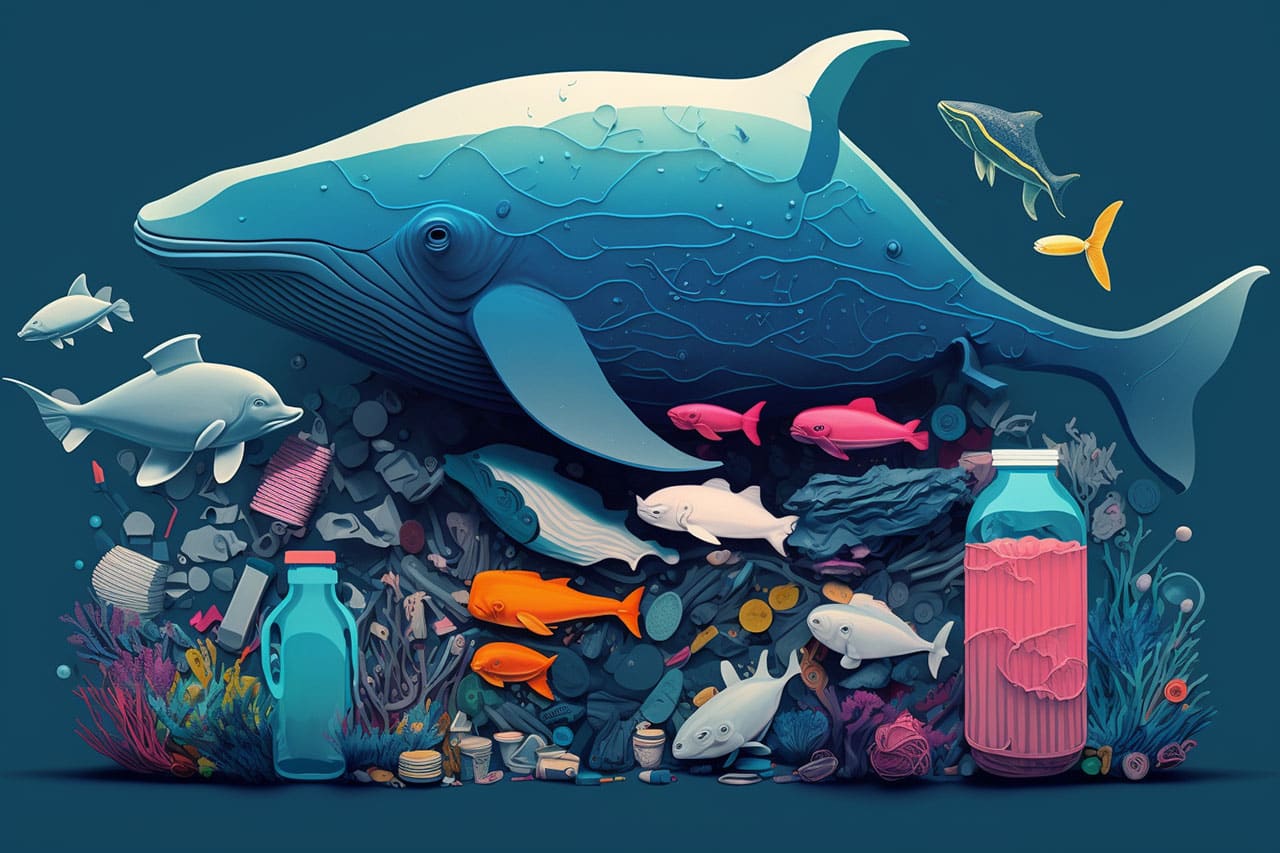Plastic waste has become a ubiquitous and alarming problem for our planet, with an estimated 8 million metric tons of plastic ending up in the ocean each year. This plastic waste is not only unsightly and harmful to human health but is also causing significant damage to marine life. In this article, we will examine the impact of plastic waste on marine life and discuss ways in which we can reduce its impact.
The Impact of Plastic on Marine Life
Marine life, from the smallest plankton to the largest whales, is affected by plastic waste. It is estimated that at least 700 marine species are affected by plastic pollution. Fish, turtles, and seabirds often mistake plastic for food and ingest it, which can lead to starvation, dehydration, and even death. Moreover, plastic waste can entangle marine animals, causing severe injuries and impairing their ability to move and find food.
The presence of plastic waste in the ocean can also have wider ecological impacts. As plastic materials break down, they release toxic chemicals into the water, which can accumulate in the tissues of marine animals and ultimately, find their way up the food chain. The presence of plastic waste also damages the natural habitats of marine life, which can lead to disruptions in entire ecosystems.
How We Can Reduce the Impact of Plastic Waste on Marine Life
Reducing the impact of plastic waste on marine life requires a concerted effort from all sectors of society, from individuals to governments and corporations. Here are some ways in which we can make a difference:
1. Reduce Plastic Consumption
Reducing plastic consumption is one of the most effective ways to reduce the amount of plastic waste that ends up in the ocean. Individuals can make a difference by refusing single-use plastics such as straws, shopping bags, and water bottles. Instead, we can opt for reusable alternatives made from sustainable materials such as glass, metal, and cloth.
2. Properly Dispose of Plastic Waste
Properly disposing of plastic waste is crucial to prevent it from ending up in the ocean. Governments and municipalities can help by implementing effective waste management systems that prioritize recycling and reduce the amount of plastic waste that ends up in landfills and oceans.
3. Support Policy Change
Individuals can also support policy changes that help reduce plastic pollution. This includes advocating for legislation that restricts single-use plastic production and distribution, encourages corporate responsibility, and promotes sustainable alternatives.
4. Support Organizations and Initiatives
There are many organizations and initiatives working to reduce plastic pollution and protect marine life. By supporting these organizations through donations or volunteer work, we can help accelerate change and create a better future for our planet.
Conclusion
The impact of plastic waste on marine life is severe and far-reaching. However, there are actions we can take to reduce its impact. By reducing plastic consumption, properly disposing of plastic waste, supporting policy change, and supporting organizations and initiatives, we can create a sustainable future for our planet and the marine life that inhabits it.
